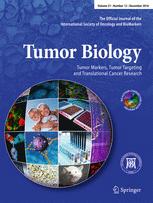

Some types of misconduct are obvious – most researchers would agree cooking data and plagiarizing someone’s work are clear no-nos. But what about overhyping your findings? Using funding allocated to an unrelated project, if it keeps a promising young student afloat? On these so-called “gray” areas of research behavior, people aren’t so clear what to do. A few years ago, David R. Johnson at the University of Nevada Reno and Elaine Howard Ecklund at Rice University interviewed hundreds of physicists; their conclusions appeared recently in Science and Engineering Ethics (and online in 2015).
Retraction Watch: Your paper discusses “ethical ambiguity” – what does that mean? Can you provide examples of such behavior?
Continue reading “Ethical ambiguity:” When scientific misconduct isn’t black and white
 Springer is
Springer is 


 A journal has flagged a paper by a researcher who has questioned the safety of genetically modified organisms, after receiving concerns that there were issues with some images.
A journal has flagged a paper by a researcher who has questioned the safety of genetically modified organisms, after receiving concerns that there were issues with some images.


 PLOS ONE has retracted the last of five papers by a former employee of Pfizer, who the company
PLOS ONE has retracted the last of five papers by a former employee of Pfizer, who the company 